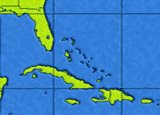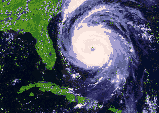 |
|
 |
 |
|
 |
| Hurricane Preparations Safety
- Part One When a hurricane has left an area devastated, there are a number of health hazards to watch out for. Accidents are just waiting to happen, from electrocution by downed power lines, to broken glass, exposed nails, chainsaw accidents and other mishaps related to digging out and cleaning up. Not only that but illness lurks in the form of water contamination, and food spoilage. Illness also occurs because of toilets that don't flush and, garbage that piles up. Food and Water Food spoilage and water contamination are two of the biggest concerns. You can guard against food spoilage by using only dry or canned food. Milk, chicken, hamburger, fish and pork will spoil rapidly and should be discarded if they've been without refrigeration for more than a couple of hours. This is not the time to trust your sense of smell. When in doubt, throw it out. Until the danger of contamination has passed, don't drink or prepare any food with tap water that hasn't been boiled. Don't let your pets drink tap water either. They are no more immune than you are and in some cases they are at great risk. As for brushing teeth, you'll need disinfected water. Don't wash your dishes with tap water unless you are prepared to rinse them in extra-chlorinated water (15 drops of chlorine bleach to the quart should do the trick.) Contact lens wearers should use disinfected water to clean their hands before handling them. Washing them with tap water will lead to eye infection. Sewage The frequent flushing of toilets in some cases may be impossible or ill advised because it can overload already weakened sewer systems. So you may need to find or make a portable toilet until you get the "all clear" sign. In any kind of urban setting, human waste left outside, even in treated latrines, contain bacteria that can taint water supplies and pose health risks. One of the age-old ways to most effectively avoid the spread of disease is one of the most critical after a hurricane, washing your hands after using the toilet or before handling food. Diarrhea is nothing to be taken lightly in the aftermath of a hurricane. Children are especially at risk of dehydration when diarrhea strikes. If it does, seek medical advice at once. Drowning Although hurricane winds can cause an enormous amount of damage, wind is not the biggest killer in such a storm. Nine out of every ten hurricane related fatalities are drowning associated with swiftly moving waters. People who enter moving water with their cars, or who get on boats on lakes or bays when a hurricane strikes the area are at grave risk of drowning, regardless of their ability to swim. Even very shallow water that is moving swiftly can be deadly. Cars or other vehicles do not provide adequate protection. Never enter moving water of any kind with your vehicle. Cars can be swept away or may break down in moving water. Be alert and follow hazard warnings on roadways or those broadcast by the media. Police and public works departments should be contacted for up to date information regarding safe roadways. |
|
Tips after a Hurricane Do not examine your home for damage with matches, candles, or other other "flame based" lighting. Use flashlights. Avoid downed power lines. If you stored water in open containers such s bathtubs, do not drink without purifying first. Back to Florida Hurricane Main Page
|